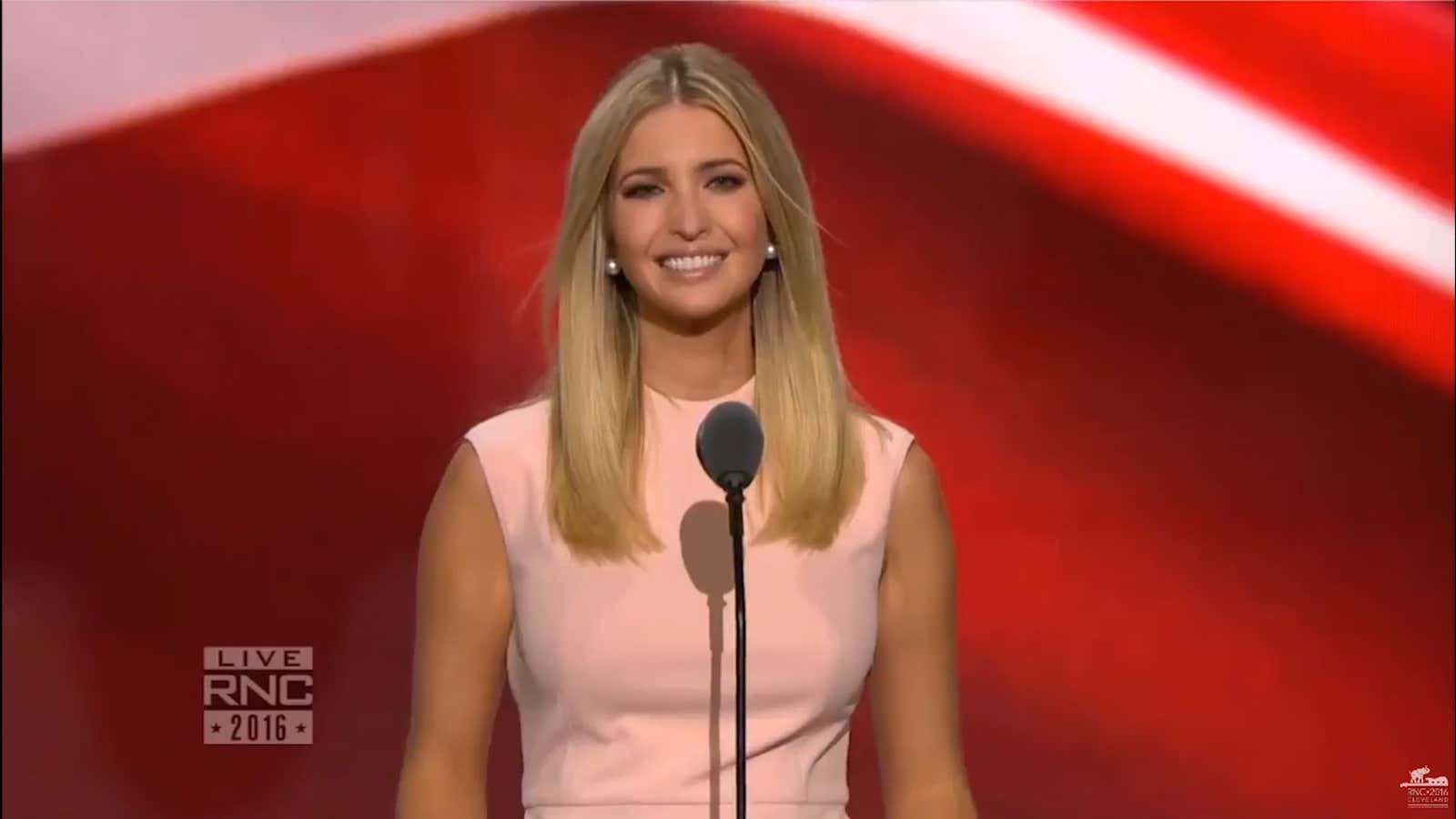As her father’s political foes are fond of pointing out, Ivanka Trump’s exclusive line of shoes for the working woman are made in China. Soon, they may be made in Africa.
The head of Huajian Group, a Chinese shoe manufacturer that produces for the Trump’s eponymously named brand, this week discussed plans to relocate the company’s production to Ethiopia, where labor is cheaper.
“My goal is to create 30,000 jobs in Ethiopia by 2020, with exports reaching $1 billion to $1.5 billion,” Zhang Huarong told the French news agency AFP. Zhang is building a “light industrial city” complete with production facilities, dorms, and its own hospital in Addis Ababa. Keeping in theme, the complex will be in shape of a woman’s shoe.
Trump’s company declined to comment.
Both Ivanka Trump and her father, Donald Trump, whose presidential campaign has rested on pledges to bring manufacturing back to the US, have come under fire for selling products made abroad. According to Huajian, the shoe company has supplied about 100,000 pairs to Ivanka Trump collection.
Writing for PBS in July, Robert Lawrence, a Harvard professor of trade and investment who surveyed shoes, scarves, and purses advertised by the Ivanka Trump fashion line, said that more than 600 of the 838 products he looked at had been imported—and half of the imported goods came from China.
Ethiopia has emerged as Africa’s biggest hub for textile manufacturing. Companies like H&M and Primark have begun sourcing apparel from Ethiopia, taking advantage of cheaper production costs and the government’s investment in industrial zones. Last year, Ethiopia was included, for the first time, on a McKinsey annual list of major sourcing destinations, based on a survey of chief purchasing officers. The executives were asked to rank the top three future sourcing destinations over the next five years.
Ethiopia’s appeal as an apparel hub underlines another way in which Ivanka Trump’s shoe line conflicts with her father’s platform. The presidential candidate has mentioned measures like imposing a 45% tariff on goods made in China. Under the recently renewed African Growth and Opportunity Act (AGOA), goods made in Ethiopia are exempt from US import duties when certain labor and other criteria are met.
